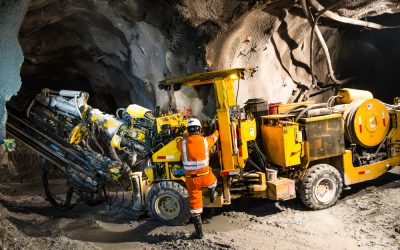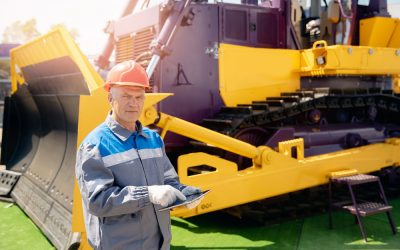Mining machinery sustainability is a central pillar of business strategy in the Australian mining industry. Without it, you may damage your mining business’s reputation, which is why careful planning and due processes can support your business goals.
Especially when considering environmental, social, and governance (ESG). These expectations are driven by investors, industry regulators, the Australian government, and stakeholders.
One of the most effective, yet overlooked, methods for driving ESG performance—and delivering long-term operational savings—is through mining equipment servicing. To understand how you can achieve new levels of corporate responsibility, read our expert explainer guide.
Mining Machinery Sustainability and its Core Business Benefits
Mining operations are inherently resource-intensive, both in terms of energy consumption and equipment usage. Heavy machinery—such as haul trucks, excavators, and drilling rigs—represents a significant investment and accounts for a considerable portion of a mine’s environmental footprint.
By focusing on the sustainability of this machinery, operators can directly influence three key ESG factors:
- Environmental: Lower emissions, reduced waste, and minimised energy consumption.
- Social: Improved safety, better working conditions, and stronger community trust.
- Governance: Transparent maintenance records, regulatory compliance, and better asset stewardship.
Across the board, stakeholders now expect mining companies to show leadership in sustainable practices. That’s across four key areas:
- Investors are applying pressure via ESG scoring systems and are more inclined to back operations with long-term viability.
- Governments and regulators tighten emissions and waste disposal regulations, making sustainable equipment practices vital.
- Local communities are increasingly vocal about the impact of mining activity on their environment and livelihoods.
- Customers and downstream partners demand lower-carbon and ethically sourced materials, forcing mining companies to re-evaluate their supply chains and operational footprint.
The Role of Sustainability in the Mining Industry
You can take many steps to improve your ESG and long-term savings. But one of the most prominent examples is through effective equipment servicing—we cover the maintenance essentials below.
Extending Product Life
Regular maintenance helps to prevent wear and tear, as well as reducing the risk of equipment failure. This delays the need for replacements, which over time can help you save money and the downtime during machinery repairs.
Reducing Waste
Servicing enables parts to be refurbished, reused, or remanufactured. This reduces the volume of waste otherwise sent off to landfills.
Increasing Energy Efficiency
Well-maintained machinery runs more efficiently than equipment you don’t look after. It consumes less fuel or electricity in the process. In turn, that means fewer pollutants being released into the Australian environment. It’s a particularly crucial step for reducing your on-site emissions.
Improve Health and Safety Standards
It’s your duty of care as an employer to comply with Australian health and safety standards. To keep a hazard-free workplace, make regular inspections and timely component replacements to reduce the likelihood of operational breakdowns. This will improve worker safety and maintain business performance.
Lowering Total Cost of Ownership
Through preventative servicing, organisations can minimise unplanned downtime and emergency repairs, which are expensive. Over time, this reduces the total cost of ownership for machinery.
Facilitating Reporting and Compliance
Digitised maintenance records support better governance by offering clear audit trails, improving compliance with industry standards, and supporting ESG reporting frameworks.
How to Future-Proof Your Business With Sustainability in the Mining Industry
As the mining sector navigates a complex web of economic, environmental, and social pressures, sustainability must be embedded into every aspect of operations, including machinery management. Servicing is not just a maintenance function.
It’s a strategic enabler of long-term savings, risk mitigation and ESG leadership. By shifting from a reactive to a proactive maintenance culture, mining companies can unlock value, extend the lifecycle of their assets, and respond credibly to stakeholder expectations
Adopt sustainability mining practices such as:
- Mine rehabilitation
- Eco-friendly equipment
- Regular equipment maintenance
- Land reclamation
- Water management
- Limiting waste production
- Environmental management
These steps, combined with training for your workforce, can lay for the foundations for a positive ESG status that leads to industry recognition and protecting your business interests.
Examples of Sustainable Mining in Australia
There are many examples of sustainable mining and the methods you can use to meet your ESG targets. Examples of sustainable mining include:
- Renewable energy use, such as wind and hydropower, to power on-site needs.
- Waste reduction through tactics such as recycling, which can consist of reprocessing to minimise waste.
- Greenhouse gas emission reduction by looking to alternative, innovative energy solutions.
- Environmental impact assessments (EIA) to lower overall environmental risks for a business analysis.
- Community engagement and development to limit business impact on surrounding areas.
As every mining operation is different, it’s good business practice to evaluate your situation to consider suitable tactics.
Boost Your Business Performance With Mining Sustainability
HDD Solutions is an industry-leading heavy–duty mining equipment supplier across Australia. For decades, we have supported businesses with quality assets from renowned manufacturers. Contact us today for an equipment quote—we’ll make sure you get the job done.
Make your mining operations efficient and profitable.
speak with our friendly team today
Is Mining Sustainable?
Your mining business can be sustainable, so long as you take the right steps to reduce your environmental impact. You can complement this approach by supporting social responsibility and maintaining positive governance of your procedures.
A crucial step is through machinery servicing, which extends equipment life, and can be supported through greater energy efficiency. By adopting a strong ESG policy, you can future-proof your business and set your projects up for long-term success.




